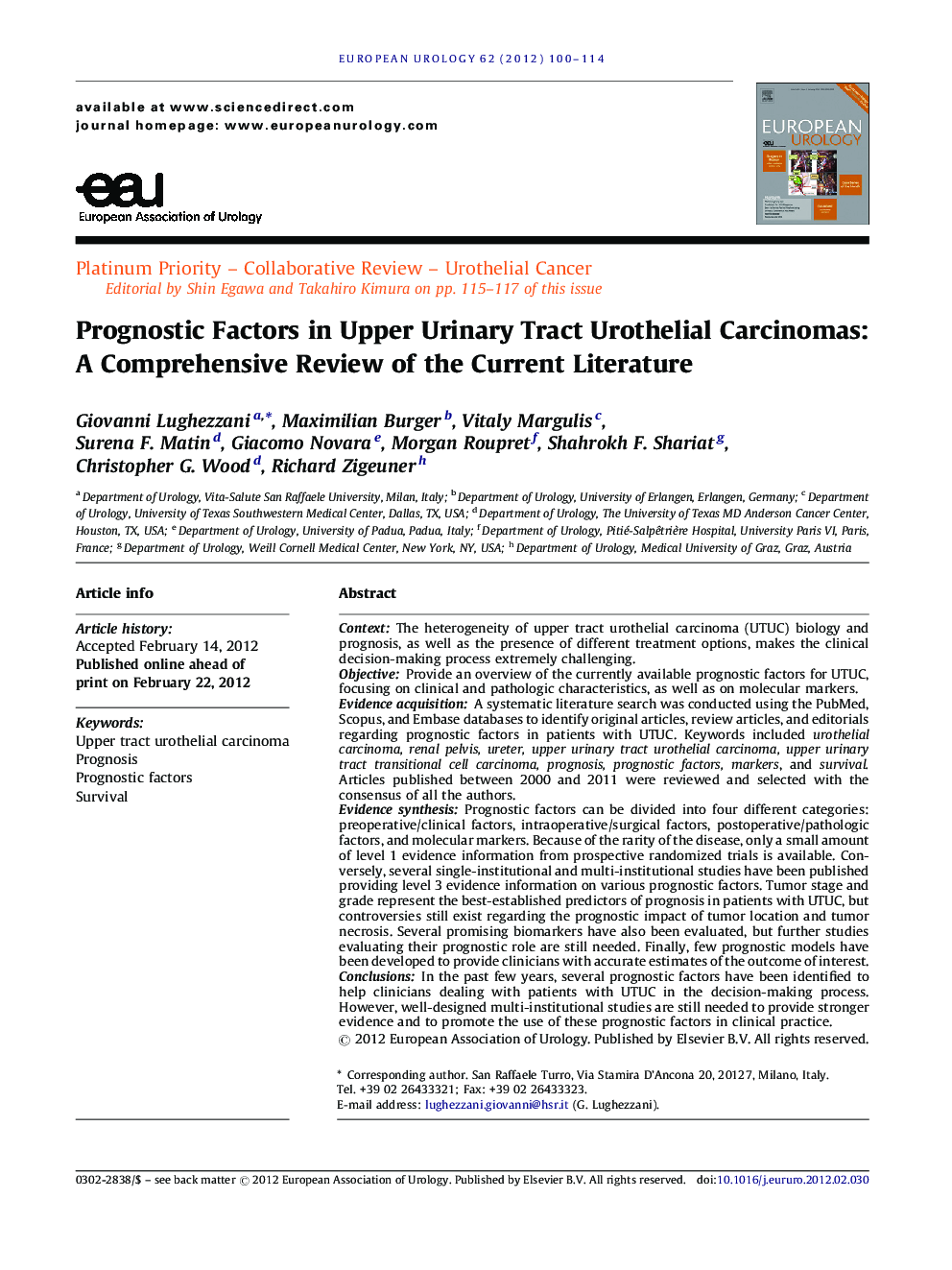| Article ID | Journal | Published Year | Pages | File Type |
|---|---|---|---|---|
| 3926678 | European Urology | 2012 | 15 Pages |
ContextThe heterogeneity of upper tract urothelial carcinoma (UTUC) biology and prognosis, as well as the presence of different treatment options, makes the clinical decision-making process extremely challenging.ObjectiveProvide an overview of the currently available prognostic factors for UTUC, focusing on clinical and pathologic characteristics, as well as on molecular markers.Evidence acquisitionA systematic literature search was conducted using the PubMed, Scopus, and Embase databases to identify original articles, review articles, and editorials regarding prognostic factors in patients with UTUC. Keywords included urothelial carcinoma, renal pelvis, ureter, upper urinary tract urothelial carcinoma, upper urinary tract transitional cell carcinoma, prognosis, prognostic factors, markers, and survival. Articles published between 2000 and 2011 were reviewed and selected with the consensus of all the authors.Evidence synthesisPrognostic factors can be divided into four different categories: preoperative/clinical factors, intraoperative/surgical factors, postoperative/pathologic factors, and molecular markers. Because of the rarity of the disease, only a small amount of level 1 evidence information from prospective randomized trials is available. Conversely, several single-institutional and multi-institutional studies have been published providing level 3 evidence information on various prognostic factors. Tumor stage and grade represent the best-established predictors of prognosis in patients with UTUC, but controversies still exist regarding the prognostic impact of tumor location and tumor necrosis. Several promising biomarkers have also been evaluated, but further studies evaluating their prognostic role are still needed. Finally, few prognostic models have been developed to provide clinicians with accurate estimates of the outcome of interest.ConclusionsIn the past few years, several prognostic factors have been identified to help clinicians dealing with patients with UTUC in the decision-making process. However, well-designed multi-institutional studies are still needed to provide stronger evidence and to promote the use of these prognostic factors in clinical practice.
